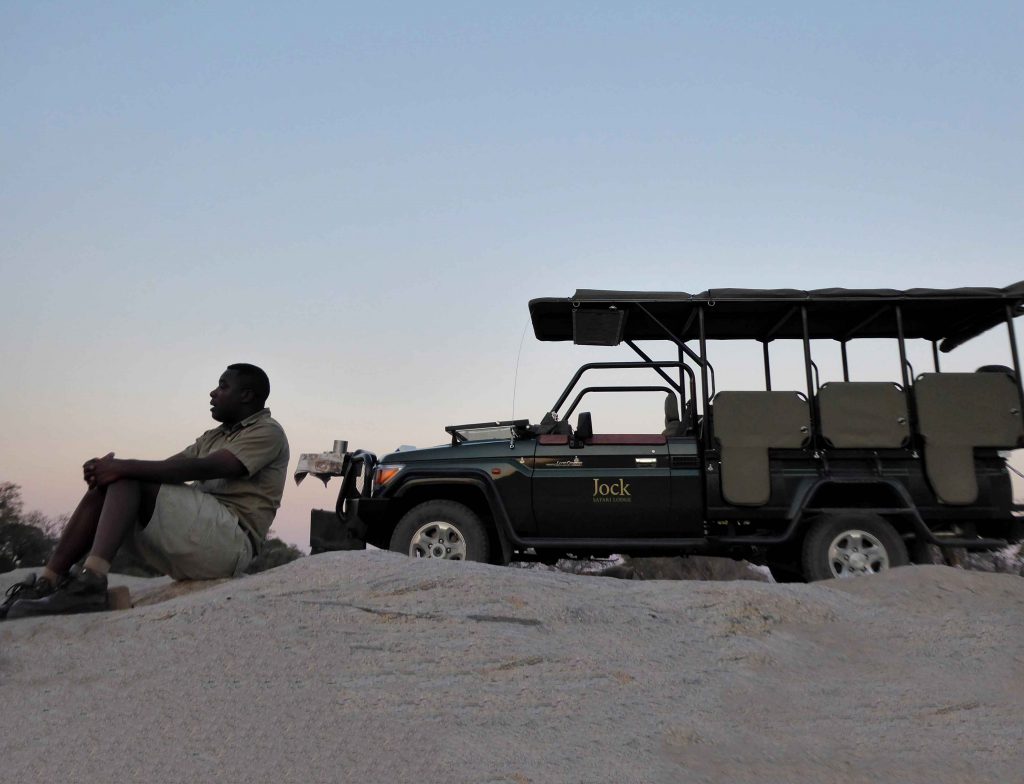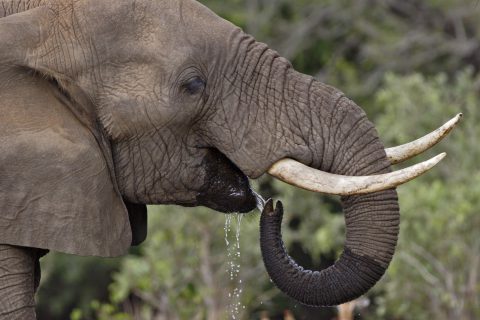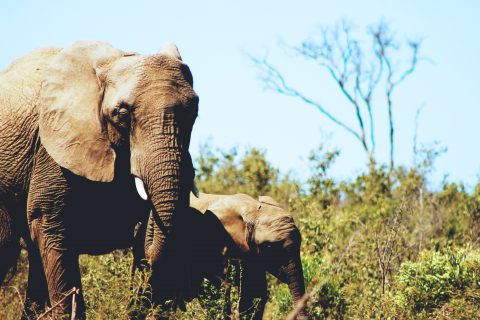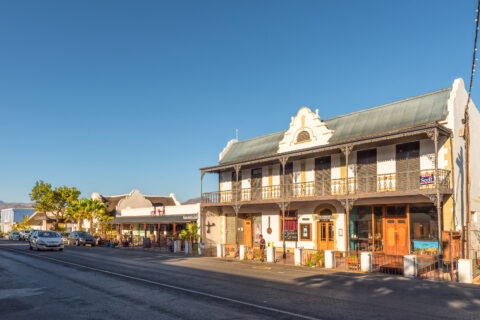Financial Mail Travel
Let It Sink Into Your Soul
We’d touched down at Skukuza, arriving in a hot, dusty, bleached-out otherworld. It was desperately dry, the earth parched and brittle like ancient leather. A cracked landscape covered by thorn trees and hot air, Kruger looked as if a digital filter had been applied to leach out the colours. What remained were the greys and brown and ghostly greens. It was not unbeautiful. Rather, it possessed a sort of sublime splendour, a loveliness that’s difficult to explain because it touches you here – deep in your chest – like an ache or a yearning that reaches across the depths of time. Because this is a land that has survived beyond the reach of memory; for millions of years, the cycles of life have played out here, irrespective of human influence.
We piled into the Land Cruiser and, behind our sunglasses, squinted in the Lowveld glare. Air – decadently hot – set upon our faces as we set off towards adventure.
You forget, don’t you? The wonder of the bush. The impact that being in it has on you. It is such a rare privilege – in this day and age – to be able to venture into such still-wild places, to see creatures whose very existence hangs on a knife’s edge. And then suddenly you’re there, being given a glimpse of it by a passionate ranger like Lazarus Mkhonto, and you can’t imagine it any other way. We were in the capable hands of a man for whom wildlife tracking was a gift he loved to share, and so our time in nature was that much richer and fuller…
In the bush, there were buskers everywhere. Impala huddled in the shade of thorn trees. Elephants sauntered towards a water hole. Lone buffalo stood lumbering on levees. And a pair of giraffes, their eyes staring at us from below long eyelashes, entertained us by locking necks in some gentle game of strength. Kudu turned to show off their majestic horns. And, above us, baboons mooned us from the safety of tall trees. We saw steenbok and zebra and mongooses and squirrels. And a pair of ground hornbills with their blood-red face scarves – extremely endangered, Lazarus told us, with just 250 left in the entire park.
It wasn’t long before we veered off one of Kruger’s tar roads and onto a dirt track marked by a little “no trespassing” sign. And soon we were driving on beach sand along a dry river bed. “Going up!” Lazarus said before we ascended a near-vertical bank. This was soon followed by, “Going down!” as we descended another. And so we crisscrossed empty rivers and slugged it along dirt roads until we arrived at a remote-controlled gate, on the other side of which folks were waiting to welcome us home.
Jock Safari Lodge occupies a 6 000-hectare concession within Kruger’s southwest – it’s the oldest such concession, where perks like being allowed to drive after dark and go off-road are tempered by the fact that only Jock’s conservation-conscious rangers get to do the driving. The main camp is situated on the banks of the confluence of the Mitomeni and Biyamiti rivers, done out in a timeless safari style that pays tribute to the era when Percy FitzPatrick and his dog Jock traversed this land – the lodge’s founders were FitzPatrick’s blood relatives, in fact, and there are still artefacts such as maps and photographs harking back to the late 19th-century when he and his heroic dog traded between Pilgrim’s Rest and Delagoa Bay.
It’s all very sensibly put together, with lots of wood and a vintage feel despite the recent makeover that’s added chic comforts to the classic-feel quarters. Everything’s designed to enhance an appreciation of what’s happening in the bush, so each of the free-standing suites enjoys a grand vantage over a prime slice of unfettered wilderness. You can stand, sit or lie on your terrace – where there’s also an outdoor tub and shower, a comfy sala, plus plunge pool and sun-loungers – and see elephants parading past or perhaps witness a chase unfold. You can enjoy much the same view from inside your room, too – just keep the curtains open and let the sunshine in… Quizzical vervet monkeys will come to check you out, perhaps stare through your glass doors to see if you’ve left any snacks in plain sight – leave the door slightly ajar for a moment and they’ll take full advantage (to their credit, they got some of mine).
After lunch, we were back in the Land Cruiser with Lazarus, his leather cowboy hat and his bush-attuned eyes that have a knack for spotting even the most well-hidden animals. He’d translate a dainty call from above into a tale about a Burchell’s coucal, and could identify with ease a brown-hooded kingfisher flittering imperceptibly above a bushbuck hiding in the reeds. He found waterbuck in the shadows, picked out dwarf mongooses scampering through the undergrowth, and pointed out the rhythm being knocked out by a woodpecker that sent its percussion-heavy symphony reverberating between the silent trees.
A stalwart of the Kruger bushveld, Lazarus is one of those rangers who doesn’t just show you the bush, but teaches you how to connect with its soul. Having spent a good portion of his life in this environment, he’s learnt to suss out its subtlest nuances, cultivating an ability to feel nature’s rhythms. His skill is not just knowing the Latin terms for animals and impressing his guests with details about their mating habits and contents of their dung, but somehow being able to listen to their thoughts, feel their emotions.
At one point, he stopped the vehicle in the midst of a large family of elephants and explained his approach. “There’s no point having a quick look and rushing off,” he told us. “You’ve got to let each moment sink into your soul.”
And so we did. We simply watched and listened and took it in. We gave ourselves permission to appreciate the moment, absorb its memory, commune with the elephants, and let it really sink in. And steadily, a new narrative opened up. We became privy to this elephant family’s specific bonds, its relationship dramas, the tiny intricacies of individual personalities.
It came as a relief that there was nowhere to rush off to, no race to the next sighting, no boxes to tick. Nature isn’t on the clock, but it does take time for humans to uncouple from the “go-go-go” impulse we carry with us.
With Lazarus’s help, we let the rest of the afternoon similarly sink in. We paused to appreciate the less obvious pleasures of the bushveld, the smaller beasts along with the large, and we took time to notice such trees as the Lowveld milkberry, the weeping boer-bean and the Transvaal saffron.
As the light softened and the sky turned to melting orange, hyenas whooped in the distance. We paused for requisite sundowners before catching glimpses of bouncing scrub hares and tiny bushbabies in the glint of the spotlight as we headed back to the lodge for a feast in the boma.
Later, I found myself on the deck outside my room staring into the blackness of the sky, riveted by the silence, entranced by the stars. I’d decided to sleep, not in my room, but in the outdoor bed that’d been made up for me in the sala. Insect netting had been lowered to transform the thatched space into a temporary tented bedroom with see-through walls. I drifted to sleep with the sounds of the bush everywhere around me: some nearby creature snuffling in the tall grass, a distant lion roaring, and hyenas – somewhere – shrieking and laughing like maniacal children.
We were up early to greet the dawn, and found Lazarus raring to go, keen to show us more. Pink and orange spectres streaked the grey-tint sky like slivers of burning embers from a simmering campfire. We were barely out the gate when we found ourselves being overtaken by four wild dogs on the trot. Evidently on a mission and oblivious to our presence, they only paused to sniff and roll in hyena turds they found in the road, a practice they use to cover their own scent and outwit the competition.
We spotted lots of kudu with their Mickey Mouse ears, grey duikers standing still pretending to be trees, and a lone teen hyena drifting across the veld like he was late back from a night of clubbing. Steenbok, waterbuck, giraffe – and a giant eagle owl that produced a loud honking sound we all assumed had been a baboon. We meandered through a dry forest where barely a leaf had been spared by the drought, and then we watched as hundreds of buffalo drifted ghostlike between the grey, skeletal trees. We found small pools of water where hippos wallowed imperceptibly below the surface and crocodiles basked menacingly on the muddy banks.
And when we found a leopard lazing on a large rock, her cubs poking their snouts curiously in our direction, Lazarus treated the moment as though it were the most natural thing in the world. As it should be.
Later, after breakfast, I plunged into the little pool on my deck, and lazed on a sunbed while a hot, fast wind licked my face. A pair of precocious vervets sat on a wall, planning a heist. And as I listened to birds squabbling in a nearby tree, I watched a fantastic herd of elephants saunter across the riverbed just beyond the tips of my toes. And I lay there, content and satisfied, letting the moment sink in.






 Sign-up and receive the Business Media MAGS newsletter OR SA Mining newsletter straight to your inbox.
Sign-up and receive the Business Media MAGS newsletter OR SA Mining newsletter straight to your inbox.